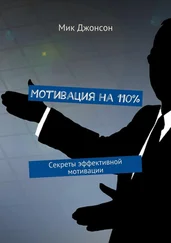Lepper, Mark R., and Diana I. Cordova. “A Desire to Be Taught: Instructional Consequences of Intrinsic Motivation.” Motivation and Emotion 16 (1992): 187–208.
Lepper, Mark R., and David Greene. “Turning Play into Work: Effects of Adult Surveillance and Extrinsic Rewards on Children’s Intrinsic Motivation.” Journal of Personality and Social Psychology 31 (1975): 479–486.
Lepper, Mark R., and David Greene. “On Understanding Overjustification: A Reply to Reiss and Sushinsky.” Journal of Personality and Social Psychology 33 (1976): 25–35.
Lepper, Mark R., and David Greene. “Divergent Approaches to the Study of Rewards.” In The Hidden Costs of Rewards: New Perspectives on the Psychology of Human Motivation , edited by Mark R. Lepper and David Greene. Hillsdale, N.J.: Erlbaum, 1978a.
Lepper, Mark R., and David Greene. “Overjustification Research and Beyond: Toward a Means-Ends Analysis of Intrinsic and Extrinsic Motivation.” In The Hidden Costs of Rewards: New Perspectives on the Psychology of Human Motivation , edited by Mark R. Lepper and David Greene. Hillsdale, N.J.: Erlbaum, 1978b.
Lepper, Mark R., David Greene, and Richard E. Nisbett. “Undermining Children’s Intrinsic Interest with Extrinsic Reward: A Test of the ‘Overjustification’ Hypothesis.” Journal of Personality and Social Psychology 28 (1973): 129–137.
Lepper, Mark R., and Melinda Hodell. “Intrinsic Motivation in the Classroom.” In Research on Motivation in Education , vol. 3: Goals and Cognitions , edited by Carol Ames and Russell Ames. New York: Academic Press, 1989.
Lepper, Mark R., and Thomas W. Malone. “Intrinsic Motivation and Instructional Effectiveness in Computer-Based Education.” In Aptitude, Learning, and Instruction , vol. 3: Conative and Affective Process Analyses , edited by Richard E. Snow and Marshall J. Farr. Hillsdale, N.J.: Erlbaum, 1987.
Lepper, Mark R., Gerald Sagotsky, Janet L. Dafoe, and David Greene. “Consequences of Superfluous Social Constraints: Effects on Young Children’s Social Inferences and Subsequent Intrinsic Interest.” Journal of Personality and Social Psychology 42 (1982): 51–65.
Lerner, Melvin J. “The Desire for Justice and Reactions to Victims.” In Altruism and Helping Behavior , edited by J. Macaulay and L. Berkowitz. New York: Academic Press, 1970.
Lerner, Melvin J. “The Justice Motive: ‘Equity’ and ‘Parity’ Among Children.” Journal of Personality and Social Psychology 19 (1974): 539–550.
Lerner, Melvin J. “The Justice Motive in Human Relations and the Economic Model of Man: A Radical Analysis of Facts and Fictions.” In Cooperation and Helping Behavior: Theories and Research , edited by Valerian J. Derlega and Janusz Grzelak. New York: Academic Press, 1982.
“Let’s Do Lunch, Billy.” People , 24 June 1991: 103.
Leung, Kwok, and Michael H. Bond. “The Impact of Cultural Collectivism on Reward Allocation.” Journal of Personality and Social Psychology 47 (1984): 793–804.
Levering, Robert. A Great Place to Work. New York: Avon, 1988.
Levin, Doron P. “Toyota Plant in Kentucky Is Font of Ideas for U.S.” New York Times , 5 May 1992: A1, D8.
Levine, David I., and Laura D’Andrea Tyson. “Participation, Productivity, and the Firms’ Environment.” In Paying for Productivity. A Look at the Evidence , edited by Alan S. Blinder. Washington, D.C.: Brookings Institution, 1990.
LeVine, Robert A. “Cultural Environments in Child Development.” In Child Development Today and Tomorrow , edited by William Damon. San Francisco: Jossey-Bass, 1989.
Levinson, Harry. The Great Jackass Fallacy. Boston: Harvard Graduate School of Business Administration, 1973.
Lewin, Kurt. A Dynamic Theory of Personality: Selected Papers. Translated by Donald K. Adams and Karl E. Zener. New York: McGraw-Hill, 1935.
Lewin, Kurt, Ronald Lippitt, and Ralph K. White. “Patterns of Aggressive Behavior in Experimentally Created ‘Social Climates.’” Journal of Social Psychology 10 (1939): 271–299.
Lewis, Catherine C. Educating Hearts and Minds. Cambridge: Cambridge University Press, 1995.
Lewis, Catherine C. “The Effects of Parental Firm Control: A Reinterpretation of Findings.” Psychological Bulletin 90 (1981): 547–563.
Lichtenstein, Nelson. “What Happened to the Working Class?” New York Times , 7 September 1992: 19.
Lickona, Thomas. Educating for Character. How Our Schools Can Teach Respect and Responsibility. New York: Bantam, 1991.
Light, Richard J. The Harvard Assessment Seminars: Explorations with Students and Faculty About Teaching, Learning, and Student Life. 2d report. Cambridge: Harvard University, 1992.
Lincoln, Ann, and Saralea Chazan. “Perceived Competence and Intrinsic Motivation in Learning Disability Children.” Journal of Clinical Child Psychology 8 (1979): 213–216.
Linden, Dana Wechsler. “Incentivize Me, Please.” Forbes , 27 May 1991: 208–212.
Lipsey, Richard G., Peter O. Steiner, and Douglas D. Purvis. Economics. 8th ed. New York: Harper &Row, 1987.
Lloyd, Jean, and Lloyd Barenblatt. “Intrinsic Intellectuality: Its Relations to Social Class, Intelligence, and Achievement.” Journal of Personality and Social Psychology 46 (1984): 646–654.
Locke, Edwin A. “Toward a Theory of Task Motivation and Incentives.” Organizational Behavior and Human Performance 3 (1968): 157–189.
Loden, Marilyn. Feminine Leadership; or How to Succeed in Business Without Being One of the Boys. New York: Times Books, 1985.
Loveland, Kathryn Kernodle, and J. Gregory Olley. “The Effect of External Reward on Interest and Quality of Task Performance in Children of High and Low Intrinsic Motivation.” Child Development 50 (1979): 1207–1210.
Lovett, Herbert. Cognitive Counseling and Persons with Special Needs: Adapting Behavioral Approaches to the Social Context. New York: Praeger, 1985.
Luce, Sally R. “Paying for Performance.” Canadian Business Review 10 (1983): 19–22.
Luster, Tom, Kelly Rhoades, and Bruce Haas. “The Relation Between Parental Values and Parenting Behavior.” Journal of Marriage and the Family 51 (1989): 139–147.
Luyten, Herman, and Willy Lens. “The Effect of Earlier Experience and Reward Contingencies on Intrinsic Motivation.” Motivation and Emotion 5 (1981): 25–36.
Mac Iver, Douglas. “Classroom Factors and Student Characteristics Predicting Students’ Use of Achievement Standards During Ability Self-Assessment.” Child Development SB (1987): 1258–1271.
Madden, Lowell. “Do Teachers Communicate with Their Students as if They Were Dogs?” Language Arts 65 (1988): 142–146.
Maehr, Martin L, and William M. Stallings. “Freedom from External Evaluation.” Child Development 43 (1972): 177–185.
“Main Fault of Parents in Raising Children.” Gallup Report no. 229, October 1984: 28.
Maister, David H. “Lockstep and the Power of Social Control.” American Lawyer , September 1994: 48–49.
Mallick, Shahbaz Khan, and Boyd R. McCandless. “A Study of Catharsis of Aggression.” Journal of Personality and Social Psychology 4 (1966): 591–596.
Malone, Thomas W., and Mark R. Lepper. “Making Learning Fun: A Taxonomy of Intrinsic Motivations for Learning.” In Aptitude, Learning, and Instruction , vol. 3: Conative and Affective Process Analyses , edited by Richard E. Snow and Marshall J. Farr. Hillsdale, N.J.: Erlbaum, 1987.
Читать дальше
Конец ознакомительного отрывка
Купить книгу

![Олег Абакумов - Третье отделение на страже нравственности и благочиния [Жандармы в борьбе со взятками и пороком, 1826–1866 гг.]](/books/27001/oleg-abakumov-trete-otdelenie-na-strazhe-nravstven-thumb.webp)










